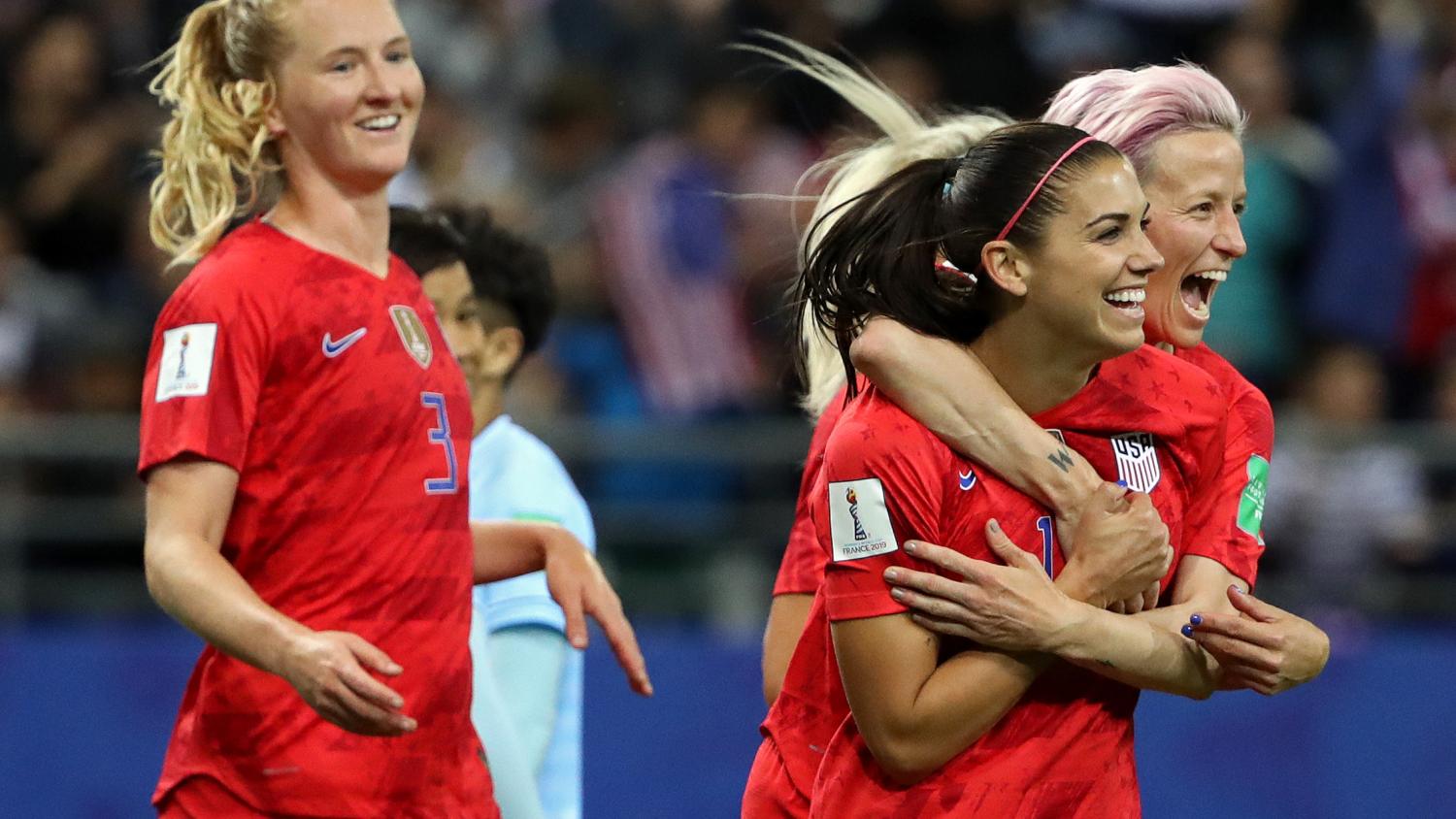The USWNT discrimination suit may be decided by mediation after the 2019 Women’s World Cup.
The U.S. women’s national team players sued U.S. Soccer in March as part of a long-running fight for equal pay. The women must play and win more games than the men’s national team but still get paid less.
USWNT lawyers reached out to U.S. Soccer lawyers after the start of the Women’s World Cup requesting mediation, The Wall Street Journal reported, citing people familiar with the situation. The players’ lawyers said if USS didn’t agree, they would ask a court to force mediation. U.S. Soccer agreed to sit down for mediation after the Women’s World Cup; the final is July 7.
U.S. Soccer Federation, women’s soccer-team players suing it for pay discrimination tentatively agree to pursue mediation after World Cup https://t.co/RrEOeiXwY4
— The Wall Street Journal (@WSJ) June 21, 2019
“We look forward to everyone returning their focus to the efforts on the field as we aim to win another title,” a U.S. Soccer spokesman said.
The USWNT has had a long battle for equal pay, dating back to a boycott of a tournament in 2000, months after the U.S. had won the 1999 Women’s World Cup in front of record crowds on home soil.
Five members of the team (Alex Morgan, Carli Lloyd, Becky Sauerbrunn, Megan Rapinoe and the since-retired Hope Solo) filed a wage-discrimination complaint with the Equal Employment Opportunity Commission in 2016. The players sought and received a right-to-sue letter from the EEOC in February of this year, which effectively ended the EEOC complaint and led to the gender equity lawsuit filed in March.
The fight for equal pay is a complicated one, and U.S. Soccer is quick to point out that both the USMNT and USWNT have separate collective-bargaining agreements, to which both parties agreed. U.S. Soccer affirms the differences in pay are based on generated revenue, not gender discrimination.
The USWNT is the greatest women’s team of all time, having won three Women’s World Cups and four Olympic gold medals. Only once has the team failed to finish in the top three of a major tournament (2016 Olympics), while the men’s team didn’t even qualify for the last World Cup.
Despite these disparities, the women receive less pay and fewer benefits.
While U.S. Soccer shouldn’t hesitate to eradicate any pay inequities in things such as per diems and travel conditions, much of the responsibility to truly allow for equal pay falls on FIFA, a supposed non-profit. World soccer’s governing body handed out $400 million in prize money for the men’s World Cup in 2018 compared to $30 million for the 2019 Women’s World Cup. France received $38 million for winning last summer’s tournament, more than all 24 women’s teams in France combined.
The possibility of mediation for the USWNT discrimination suit isn’t the first time there has been an attempt to solve this dispute. In March, a few weeks after the lawsuit was filed, both parties met in the nation’s capital but were unable to reach any agreement.
The 2019 Women’s World Cup has brought unprecedented viewership to the women’s game, with TV records being set around the globe. The U.S. just finished throttling Group F with 18 goals for and none against.
The USWNT will play Spain in the round of 16 on Monday. Recently, the Spanish FA agreed to spend $22.75 million on women’s soccer for the 2019-20 campaign, including broadcasting every top-flight match on TV. The NWSL, the top-flight women’s league in the U.S., does not currently have a broadcast TV sponsor.





